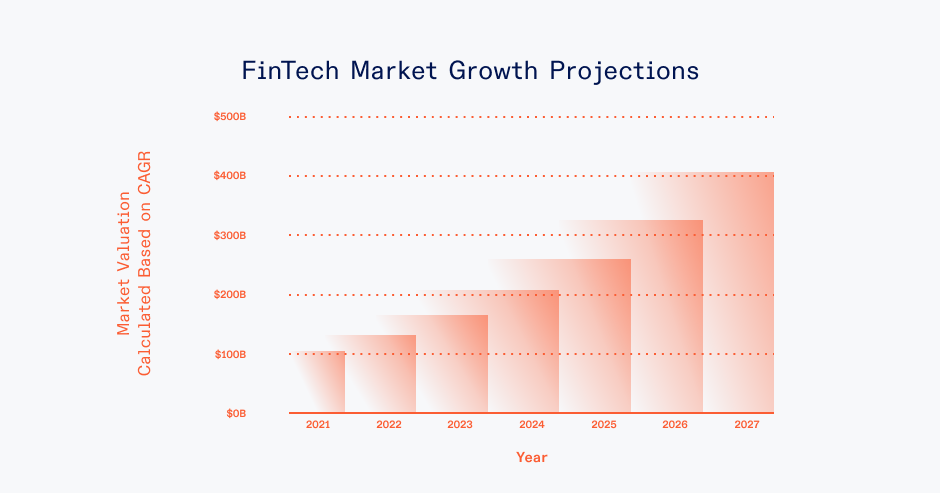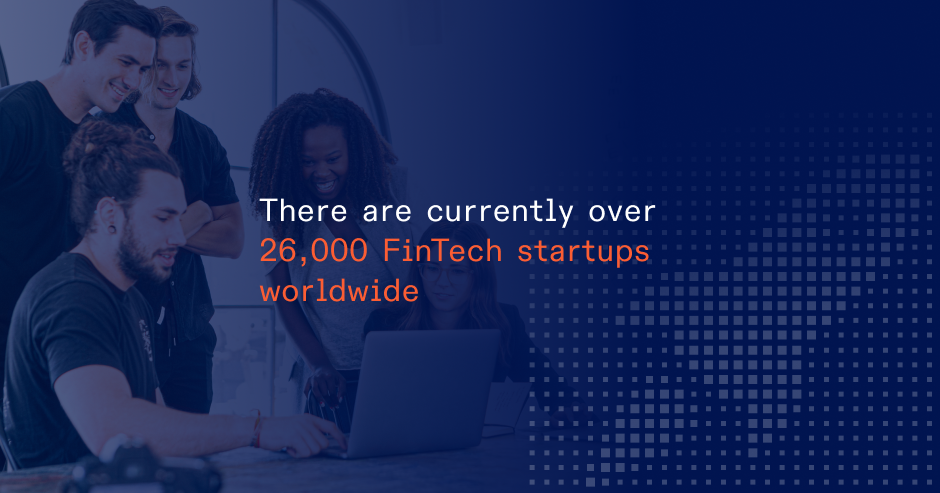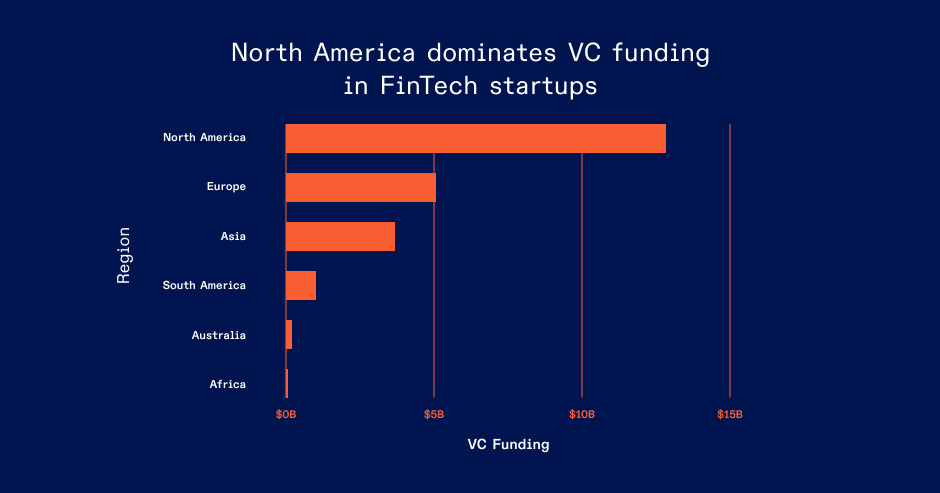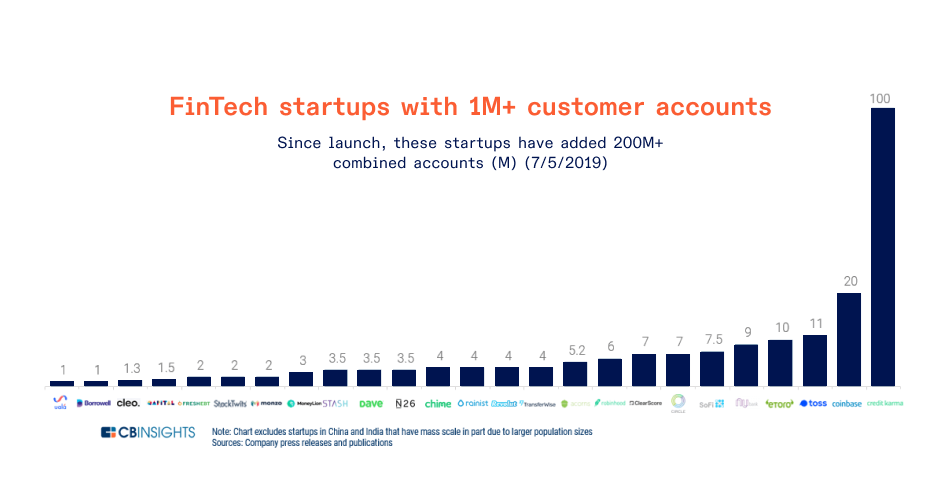Financial technology, or FinTech, refers to innovative technology aimed at enhancing and automating financial services. It empowers businesses, individuals, and consumers to manage their financial operations efficiently through specialized software and algorithms on computers and smartphones.
FinTech has made a significant impact on the financial sector, leveraging cutting-edge technologies like Artificial Intelligence, Robotics, Biometrics, Blockchain, and Peer-to-Peer lending. Start-up companies like PayPal, GoldMoney, and Alipay have embraced these opportunities to revolutionize the market.
Initially focused on backend systems of established financial institutions, FinTech has now evolved into consumer-oriented services, encompassing sectors such as education, retail banking, fundraising, investment management, and more.
While cryptocurrencies like Bitcoin receive media headlines, the bulk of FinTech's influence lies in the traditional global banking industry, with its multi trillion-dollar market capitalization.
In this article, we'll explore key FinTech statistics and use cases, highlighting how technology has transformed finance. Let's begin!

Skip the talent struggle. Connect with seasoned, expertly vetted engineers from FinTech backgrounds effortlessly. Get started in just 48 hours →
Key 5 Fintech statistics
When it comes to market share and data analysis, the numbers always come out on top.
- The fintech industry is currently worth approximately $180 billion and is expected to reach $188 billion by 2024. (Source: Deloitte)
- Global fintech industry revenue has nearly doubled since 2017, growing by over 100% since then. (Source: Deloitte)
- There are currently over 26,000 fintech startups worldwide, and this number has more than doubled in the past two years. (Source: BCG)

- Digital payment is one of the largest fintech products, holding 25% of the fintech market. (Source: McKinsey)
- In China, 90% of citizens use fintech banking, payment, and financial management solutions. (Source: EY)
Top 5 FinTech use cases
North America remains the leading region for fintech startups, closely followed by Asia, with Europe coming next. Within the fintech landscape, several areas are experiencing significant innovation and growth, including:

1. Robo-advisory
Assets under management in the Robo-Advisors market are projected to reach US$2.76tn in 2023. Robo-advisory is a technology-driven concept that offers financial advice using sophisticated algorithms, minimizing the need for human intervention. By utilizing complex computer algorithms, robo-advisors provide advice to investors without the involvement of traditional intermediaries. This approach streamlines the process, making it more transparent and efficient for investors to access the stock market. With robo-advisory, investors can benefit from value-added services in a user-friendly and traceable manner.
2. Alternate lending
Alternate lending, a FinTech innovation, addresses the challenge faced by traditional banking industries in lending funds to small businesses profitably. Peer-to-peer lending platforms have emerged, offering loans with mutually agreed terms and conditions at low-interest rates. This service has gained popularity among investors and is expected to grow in emerging markets. In developed countries, alternate lending services encompass payday loans, money orders, mortgage loans, refund anticipation loans, car title loans, and more. Notable alternative lending companies include SpringLeaf Financial, Lendmark Financial Services, and Duvera Financial Inc.
3. Blockchain & cryptocurrencies
The global blockchain market will reach $67.4 billion by 2026. Blockchain technology has revolutionized online transactions by eliminating the need for third-party validation, enhancing security, and enabling smart contracts for automated contract execution. Businesses have adopted blockchain and cryptocurrencies to benefit from increased traceability, security, transparency, faster transactions, and reduced costs. Notable examples of blockchain and cryptocurrencies in FinTech include Bitcoin, Ethereum, Binance, and Coinbase, among others, offering various solutions like DeFi, cryptocurrency exchanges, and crypto assets.
In the finance industry, the future application of blockchain lies in cryptocurrencies, particularly Bitcoin Mining, a peer-to-peer process that verifies bitcoin transactions through a decentralized network. As blockchain and cryptocurrencies gain popularity, many fintech startups are actively utilizing digital platforms to send and store bitcoin and other digital currencies. The versatility and potential of blockchain technology continue to shape the future of financial services.
Skip the talent struggle. Connect with seasoned, expertly vetted engineers from Blockchain & Crypto backgrounds effortlessly. Get started in just 48 hours →
4. Digital payments
FinTech start-ups have introduced smarter and more convenient digital payment options for customers. PayPal is a widely recognized digital payment method that enables users to send and receive money with just a valid email address after registration. As these digital payment options gain popularity, traditional services like ATM transactions may become obsolete, especially in developed countries where mobile payment apps and mobile banking are on the rise due to demonetization efforts. This trend is expected to extend to emerging countries in the near future, leading to a significant shift towards digital payments worldwide.
5. Open Banking
Open banking has reached a significant milestone, surpassing 11.4 million payments. Open Banking is a transformative concept that seeks to revolutionize the financial industry by advocating for open access to bank data. The idea behind Open Banking is to break down the traditional barriers that restrict access to financial information and empower individuals and businesses to have full control over their financial data.
In an Open Banking ecosystem, banks and financial institutions are encouraged to provide secure and standardized application programming interfaces (APIs) that allow third-party developers to access customer data with explicit consent. This creates a connected network of financial institutions, fintech startups, and other third-party providers, all working together to offer innovative and personalized financial services to consumers.
One of the most notable examples of Open Banking in action is the all-in-one money management tool, Mint. Mint aggregates financial data from various bank accounts, credit cards, and investment accounts, giving users a comprehensive view of their finances in one place. This enables users to track their spending, create budgets, and get personalized financial insights, all powered by the data shared through Open Banking APIs.
6. Insurtech
Insurtech, a subset of fintech, is disrupting the insurance industry by addressing its challenges, including complex regulations, high customer acquisition costs, and expensive relationship management. By leveraging technology, Insurtech aims to simplify and streamline various insurance processes, such as claims processing and fraud detection. Additionally, it offers customized insurance services for different market segments. Notable Insurtech companies include Ladder, WeFox, Spot, and Zesty.

Summing up
In summary, the finance industry is experiencing significant transformation with the rise of fintech, leading to increased adoption of mobile and card payments and a decline in cash transactions. Fintech innovations are driving rapid advancements, and we can expect to witness even more progress in the future. The future of finance is undoubtedly promising, marked by continuous technological advancements and improvements in financial services.